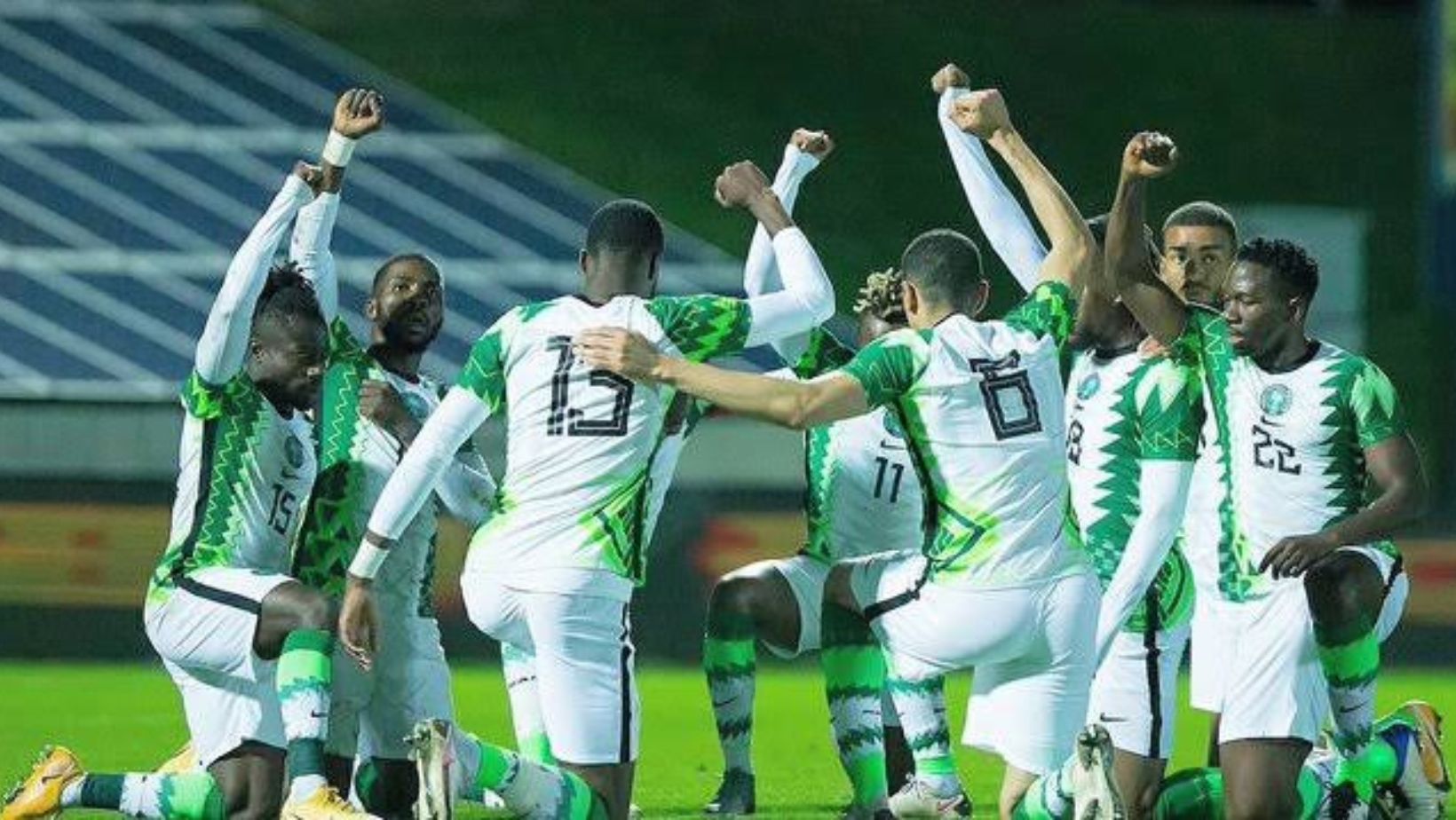Indonesia, a country known for its vibrant culture, diverse population, and passionate love for football, has long dreamed of qualifying for the FIFA World Cup. Though the Indonesian national team has faced its challenges in the past, there is a growing sense of optimism about the future of the sport in the country. Should Indonesia qualify for the World Cup, it would not only be a historic achievement for the nation’s football scene but would also have a profound impact on its economy and various industries. A World Cup appearance would be an opportunity for businesses across the country to capitalize on the heightened interest and excitement that such a major event would generate.
The potential economic benefits of World Cup qualification are far-reaching, from increased consumer spending to global brand exposure. Football, being one of the most popular sports in the world, has the ability to unite people and drive demand in many sectors. From tourism to retail, hospitality, and media, Indonesia’s World Cup qualification would be a game-changer for businesses looking to tap into the wave of national pride and global attention. In this blog post, we will explore how businesses across various sectors would stand to benefit from Indonesia’s historic World Cup qualification.
Boosting the National Economy: The Ripple Effect of World Cup Qualification
The economic impact of Indonesia’s qualification for the World Cup would be felt across multiple sectors, both directly and indirectly. The World Cup is a global event that generates billions of dollars in revenue worldwide. With Indonesia’s qualification, the country would be thrust into the global spotlight, attracting attention from foreign markets, sponsors, and potential investors. The excitement surrounding the national team’s participation would encourage consumer spending and stimulate economic activity across the board.
Here are some key areas where businesses could benefit:
1. Tourism and Hospitality Boom
One of the most immediate effects of Indonesia’s qualification would be a significant boost to the tourism and hospitality industries. The World Cup is a major global event that draws millions of international fans, media personnel, and tourists. Even though the World Cup would likely take place in a host nation, Indonesia would see a surge in international visitors eager to experience the excitement and energy surrounding the national team.
Inbound tourism: As Indonesia qualifies for the tournament, people from all over the world, particularly those with Indonesian heritage or a passion for the sport, would travel to the country to support their team. Fans would flock to Indonesia to watch matches in local sports bars, fan zones, and public viewing areas. The influx of international fans would have a direct impact on airlines, hotels, and local businesses, creating a significant boost to the tourism industry.
Outbound tourism: On the flip side, Indonesian fans would also be traveling abroad to follow their team. This would result in increased demand for travel-related services, including flights, accommodations, and tour packages. Airlines would likely offer special promotions and chartered flights to cater to the massive number of supporters traveling to the World Cup host nation, providing a significant opportunity for growth in the travel and tourism sector.

2. Retail and Merchandise Sales
Football fans around the world love to support their teams by purchasing official merchandise, and Indonesia’s qualification for the World Cup would create a massive demand for Garuda-branded gear. The retail sector would see a significant boost in sales, as fans rush to buy jerseys, scarves, hats, and other World Cup-related merchandise to show their support.
Local merchandise: Local businesses, including small-scale clothing manufacturers and souvenir shops, would benefit from increased demand for Indonesian football merchandise. Popular local brands could produce limited edition items, with fans eager to wear the Garuda colors and display their national pride.
Online retail: With the rise of e-commerce in Indonesia, online platforms would see a massive spike in sales, with fans ordering World Cup-related gear from the comfort of their homes. Brands could also collaborate with international companies to sell exclusive merchandise globally, broadening their reach and enhancing brand visibility on a global scale.
Sponsorships and collaborations: With the national team’s participation in the World Cup, Indonesian companies would be more likely to sign sponsorship deals with global brands. Companies in various sectors could collaborate with the Indonesian Football Association (PSSI) to create special products, events, and campaigns surrounding the World Cup.
3. Media and Broadcasting Industry Growth
The media and broadcasting industry would be one of the largest beneficiaries of Indonesia’s World Cup qualification. The tournament is a global spectacle that attracts millions of viewers worldwide, and Indonesia’s participation would lead to increased television ratings, online streaming, and social media engagement.
Television and digital media: Indonesian broadcasters would capitalize on the event by broadcasting all of the World Cup matches featuring Indonesia and creating special coverage related to the team’s progress in the tournament. This would provide a boost to advertising revenue for television channels, streaming platforms, and other digital media outlets. Major companies would likely invest in commercials, promotional campaigns, and advertising spots to reach the massive World Cup audience.
Social media engagement: Social media platforms would be buzzing with posts, memes, highlights, and updates related to Indonesia’s performance. Brands would use this moment to launch viral marketing campaigns, tapping into the national excitement and global audience watching the event. Influencers, celebrities, and digital content creators would engage with their followers, creating a ripple effect of content that keeps fans excited and engaged throughout the tournament.
Sponsorship deals: International sponsors would flood into the Indonesian market to associate their brands with the national team. Companies in the food, beverage, automotive, and technology sectors would jump at the opportunity to sign deals with the Indonesian Football Association and showcase their products during the tournament. This would create a new avenue for revenue and increase the visibility of Indonesian football on the global stage.
Infrastructure Development: Building the Future of Football in Indonesia
Indonesia’s qualification for the World Cup would also accelerate infrastructure development across the country. With the heightened interest in football and the increased investments that would flow into the industry, Indonesia would be more motivated than ever to improve its stadiums, training facilities, and transportation systems to meet the demands of hosting international matches and events.
Stadium upgrades: To maintain a global standard, Indonesia would likely invest in upgrading its existing football stadiums, ensuring they meet international standards for safety, comfort, and accessibility. Renovating and expanding stadiums in key cities like Jakarta, Surabaya, and Makassar would create long-term benefits for both the sport and the local economy.
New football facilities: As interest in the sport grows, the Indonesian government and private investors will likely invest in new football training centers and academies. These facilities would help develop young talent, improve coaching methods, and provide opportunities for footballers to train at a world-class level. Building state-of-the-art football infrastructure would position Indonesia as a hub for Southeast Asian football development.
Transport and logistics: With the increased flow of tourists, fans, and media during the World Cup, Indonesia would need to invest slot gacor in improving its transport infrastructure. This would include better airports, highways, public transportation systems, and stadium access, ensuring that visitors and players alike can travel efficiently across the country.

The improvements in infrastructure would benefit local businesses and the tourism sector, providing long-term advantages beyond the World Cup.
Sponsorship, Branding, and Marketing Opportunities
A World Cup qualification would create a host of opportunities for sponsorships, branding, and marketing across various sectors. Indonesian companies would be eager to align themselves with the national team’s success, using the occasion to boost their visibility both domestically and internationally.
Brand partnerships: Brands from all sectors, including food and beverage, fashion, technology, and automotive, would slot88 look to partner with the national team and showcase their products to a wider audience. The synergy between national pride and business would be palpable, with companies seeking to tap into the goodwill and excitement surrounding the team’s success.
Global exposure: For businesses, World Cup qualification would provide exposure on a global scale. Indonesian companies would be able to expand their reach through international marketing campaigns and collaborations with global brands, raising their profile in the global market. Whether through product endorsements, advertisements, or special promotions, businesses would leverage the World Cup to attract new customers and investors.
Conclusion: A New Era for Indonesian Business
If Indonesia were to qualify for the World Cup, it would have a ripple effect that would benefit a wide range of industries and businesses throughout the country. From tourism and retail to media, infrastructure, and sponsorship, the economic impact would be transformative. It would provide an opportunity for businesses to tap into the global excitement surrounding the event, enhancing their brand visibility, increasing consumer spending, and opening doors for long-term growth. The qualification would mark the beginning of a new era for Indonesian football and the business landscape, one that would be driven by national pride, global attention, and a shared passion for the beautiful game.

























































































